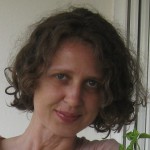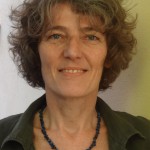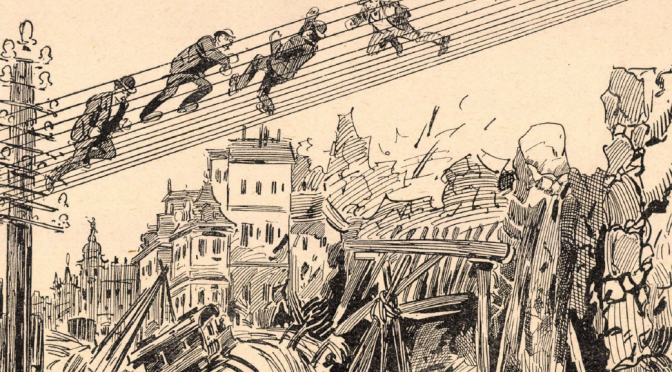Gender As a Transnational Platform. Toward a Sociology of the Diffusion of Feminist Knowledges in Central Europe in the 1990s
Research Area 1: Displacements, “Dépaysements” and Discrepancies.
Contact: ioana.cirstocea@cefres.cz
 My work focuses on the diffusion and the institutionalization of the knowledges on gender in the post-communist context. Under the democratization and, more generally, the integration of Central Europea societies in globalized dynamics during the 1990s, such knowledges, supported by the technocratic promotion of the rights of women through international programs (may they be philanthropical or derived from EU or UN policies) have been understood and applied in various ways on the local level. Such diversity reflects the social processes leading to the building of transnational communities of thoughts and concern.
My work focuses on the diffusion and the institutionalization of the knowledges on gender in the post-communist context. Under the democratization and, more generally, the integration of Central Europea societies in globalized dynamics during the 1990s, such knowledges, supported by the technocratic promotion of the rights of women through international programs (may they be philanthropical or derived from EU or UN policies) have been understood and applied in various ways on the local level. Such diversity reflects the social processes leading to the building of transnational communities of thoughts and concern.
My hunch is that gender appears as and becomes a legitimate intellectual issue all through Central Europe through a transnational “platform”, which abides by academic, militant and technochratic logics. Such social space is defined by the trajectories of a diversity of actors (feminist groundbreakers, who founded new teaching programs and research centers, and specialized in equality) anchored in different national frames. Without turning into formalized collectives, this transnational space is articulated around institutional places (militant networks, academic initiatives, programs of international organizations) and events (mobilization, scientific events, collective projects or publications).
My study of its perimeter and structuring dynamics is based on a prosopographic approach, with special attention to the variety of places and observation scales, using theoretical tools from the history of social and human sciences and from the sociology of international circulations.
CV
Current Situation
- Researcher (chargée de recherche) at CNRS, within the research unity CESSP Paris (CNRS, EHESS, Paris 1 University, team CSE – UMR 8209).
- Coordinator of the ANR program “GLOBALGENDER. Regards croisés sur la globalisation du genre”, 2013-2016, Maison interuniversitaire des sciences de l’homme MISHA Strasbourg.
- Member of the scientific board of the review L’Homme et la société.
Contact
EHESS (office 503), 190-198, Avenue de France, 75013 Paris.
E-mail: Ioana.Cirstocea@misha.fr
Personal webpage: http://www.cessp.cnrs.fr/spip.php?rubrique262.
Education
2004: PhD (Sociology), École des Hautes Études en Sciences Sociales, Paris.
2000: DEA, equ. 2nd year of Master (Sociology), École des Hautes Études en Sciences Sociales, Paris.
1996 : Master (Cultural Studies), University of Bucarest.
1995 : Maîtrise, equ. 1st year of Master (French Studies), University of Bucarest.
Awards
2013: Prix de la Francophonie pour jeunes chercheurs.
2004: Mention spéciale, Prix de la meilleure thèse soutenue à l’EHESS (best PhD defended at EHESS).
Professional Experience
Research
From 2006: chargée de recherche au CNRS (section 40) ; membre de l’UMR 8209 CESSP Paris depuis le 1er octobre 2015, précédemment membre de l’UMR 7363 SAGE Strasbourg ; chargée de recherche de première classe depuis 2011.
2013-2016: coordinatrice du programme ANR « GLOBALGENDER. Regards croisés sur la globalisation du genre » (Maison interuniversitaire des sciences de l’homme Alsace MISHA Strasbourg).
2011-2013: Coresponsable avec Dorota Dakowska (Université de Strasbourg) du projet « L’Académie en chantier. Transformations des universités centre-est européennes depuis 1989 » (Programme formation-recherche du CIERA Centre interdisciplinaire d’études et de recherches sur l’Allemagne).
2013-2015: Membre du programme « Réformer l’Etat par le marché. L’’économisation’ du secteur public dans l’Europe postcommuniste » (MISHA Strasbourg coordonné par Valérie Lozac’h).
2010-2013: Membre du programme ANR « EureQUA. Quantifier l’Europe » (Université de Nantes-ENS Paris, coordonné par Martine Mespoulet)
International Research Stays
2014 (September-November): Center for European and Mediterranean Studies, New York University (Soutien à la mobilité internationale of the CNRS).
2010 (September-October): Institute for Research on Women, Rutgers State University, New Jersey (Visiting Global Scholars; Fulbright grant).
2008 (February-June): Central European University, Gender Studies Department, Budapest (visiting scholar in residence).
2005-2006 (October-July): Faculty of Social, Political and Economic Sciences, Université libre de Bruxelles (bourse postdoctorale de l’Agence Universitaire de la Francophonie).
Teaching
From 2013: Séminaire de recherche « Regards croisés sur la globalisation du genre », EHESS, Paris (avec Delphine Lacombe et Elisabeth Marteu, dans le cadre du programme ANR « GLOBALGENDER » et du master « Genre, politique, sexualités » (mention Sociologie) de l’EHESS).
2008-2015: Cours à l’Université de Strasbourg (Institut d’études politiques, Institut des hautes études européennes) : « Initiation à la recherche en sciences sociales » ; « Genre et politique » ; coordination d’une douzaine de mémoires de recherche d’étudiants.
Publications (selection)
Book
Faire et vivre le postcommunisme. Les femmes roumaines face à la « transition », Bruxelles, Éditions de l’Université de Bruxelles, 2006.
Articles
- « La ‘sororité’ à l’épreuve – pratiquer l’internationalisme féministe au lendemain de la guerre froide », Critique internationale 66, janvier-mars 2015 (dossier thématique « Communismes et circulations transnationales » coordonné par Paul Boulland et Isabele Gouarné), pp. 85-104
- « Soi-même comme un autre » : l’individu aux prises avec l’encadrement biographique communiste (Roumanie, 1960-1970), Bernard Pudal (dir.), Le sujet communiste. Identités militantes et laboratoires du « moi », Presses Universitaires de Rennes, 2014, pp. 59-78
- « Les restructurations de l’enseignement supérieur en Roumanie après 1990 : apprentissage international de la gestion, professionnalisation de l’expertise et politisation de l’enjeu universitaire », Revue d’études comparatives Est-Ouest, Vol. 45, 2014, n° 1, pp. 125-163
- « Cooptation et adhésion des femmes au Parti communiste roumain », in Rose-Marie Lagrave (dir.), Fragments du communisme en Europe centrale, Paris, Editions de l’EHESS, 2011, pp. 143-191.
- « The Transnational Feminism in the Making: the Case of Post-communist Eastern Europe », in C. Fillard, F. Orazi (dir.), Exchanges and Correspondence: the Construction of Feminism, Cambridge, Cambridge Scholars Publishing, 2010, pp. 64-83.
- « Eléments pour une sociologie des études féministes en Europe centrale et orientale », International Review of Sociology/ Revue internationale de sociologie, 20, n° 2, 2010, pp. 321-346.
 Ioana Popa is a researcher at CNRS and a member of the Institut des Sciences sociales du politique (ISP, UMR 7220). Trained as a sociologist, she works on cultural and scientific circulations between East and West during the Cold War. Her book, Traduire sous contraintes. Littérature et communisme (1947-1989) [Translating Under Duress. Literature and Communism 1947-1989], published in 2010, intertwines several approaches—from the sociology of translation to that of literature and of intellectuals. Ioana Popa is also part of the European project on “International Cooperation in the Social and Human Sciences: Comparative Historical Perspectives and Future Possibilities (INTERCO-SSH)”, in the frame of the 7th program of the European Commission (2013-2017).
Ioana Popa is a researcher at CNRS and a member of the Institut des Sciences sociales du politique (ISP, UMR 7220). Trained as a sociologist, she works on cultural and scientific circulations between East and West during the Cold War. Her book, Traduire sous contraintes. Littérature et communisme (1947-1989) [Translating Under Duress. Literature and Communism 1947-1989], published in 2010, intertwines several approaches—from the sociology of translation to that of literature and of intellectuals. Ioana Popa is also part of the European project on “International Cooperation in the Social and Human Sciences: Comparative Historical Perspectives and Future Possibilities (INTERCO-SSH)”, in the frame of the 7th program of the European Commission (2013-2017).






